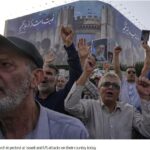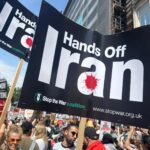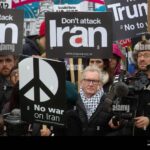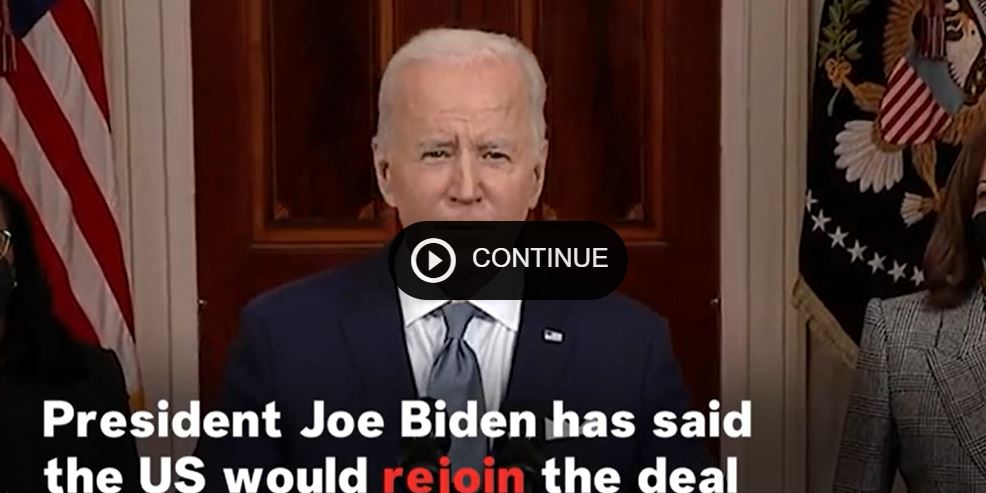
t has been more than a year since the United States and Iran agreed to begin negotiations on a mutual return to the Joint Comprehensive Plan of Action (JCPOA)—the formal name of the Iran nuclear deal. The agreement, the product of about three years of negotiations between Washington and Tehran during the Obama administration, was a straight-forward proposal: In return for Iran capping its enrichment activities, shipping 97 percent of its enriched uranium stockpile out of the country and allowing unprecedented international monitoring over its nuclear program, the U.S. would remove banking, financial and energy sanctions off the Iranian economy.
The JCPOA, however, was highly controversial in Washington. A vocal camp of hardliners was adamantly opposed to signing any agreement that didn’t result in Iran’s full capitulation. Some of those very same opponents, like John Bolton and Mike Pompeo, would later find themselves in key national security roles in the executive branch. On May 8, 2018, former President Donald Trump formally announced a U.S. withdrawal from the JCPOA in favor of a campaign of maximum economic pressure against Iran. The idea, as articulated by Pompeo, was to put such biting pressure on Tehran’s finances that it would have no choice but to crawl back to the table on Washington’s terms.
What the U.S. received instead was the exact opposite of what Bolton, Pompeo and other proponents of maximum pressure confidently predicted. While there’s no doubt Iran’s economy spiraled into a recession due to the sanctions (Iran’s crude oil exports collapsed by over 75 percent between 2017 and 2020), there’s also no doubt the Iranian government responded to the U.S. pressure campaign with maximum resistance. If the objective was to convince Iran to forgo its nuclear program, then the strategy failed—and failed abysmally.
In February, the International Atomic Energy Agency reported that Iran’s stockpile of enriched uranium stood at over 3,100 kilograms, more than 10 times what Tehran possessed when it was complying with the nuclear deal. Approximately 33 kilograms of that material is enriched to 60 percent, a far cry from the 3.67 percent permitted under the agreement. Iran’s foreign policy also became more belligerent and aggressive after the U.S. settled on its maximum pressure campaign; unable to sell its own oil abroad, Tehran began to target the oil of its rivals in the region, either by damaging civilian oil tankers in the Persian Gulf or attacking facilities in Saudi Arabia. U.S. troops stationed in Iraq and Syria weren’t immune from Iranian retaliation, as Shiite militias backed by Tehran lobbed missiles and rockets at U.S. bases in both countries. The most recent attack occurred on April 7, which injured four U.S. servicemembers.
The Biden administration has been trying to clean up the mess ever since. The year-long negotiations are in many ways an acknowledgment that Washington’s previous strategy was not only a mistake, but a self-inflicted shotgun wound to the foot.
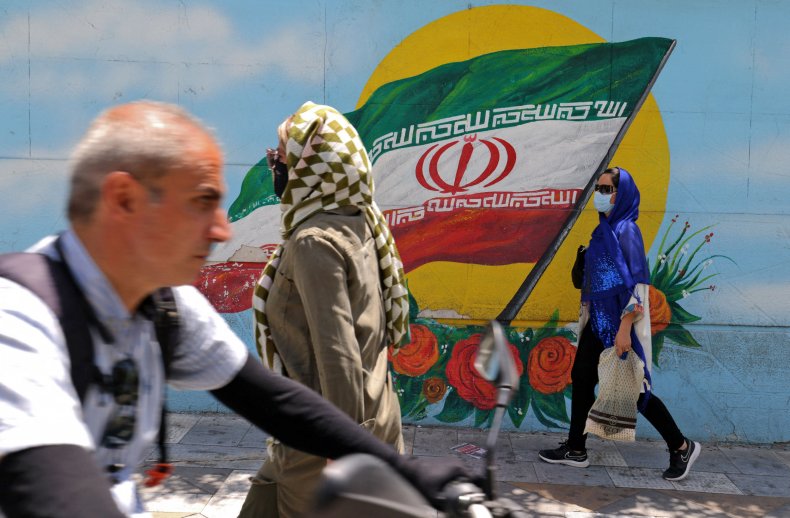
Unfortunately, admitting a mistake is not the same thing as fixing it. Arriving at the point where the U.S. and Iran can put their signatures on the dotted line has been as labor-intensive as a tired, thirsty traveler in the desert searching for an oasis. Whenever there happens to be progress in the talks, another obstacle complicates the journey. The latest bump in the road is the status of the Islamic Revolutionary Guard Corps (IRGC).
The issue of whether or not to delist the IRGC from the State Department’s Foreign Terrorist Organization (FTO) list has brought the nuclear talks to a standstill. Iran is tying the IRGC’s delisting to the successful completion of the nuclear talks. The U.S. has apparently rejected this demand; a senior administration official told The Washington Post‘s David Ignatius that President Joe Biden “doesn’t intend to concede on the terrorist designation, even though this may be a dealbreaker.” The snafu is only reinforcing the dour assessments of top U.S. policymakers like Secretary of State Antony Blinken, who said last week he isn’t optimistic about the negotiations crossing the finish line.
The Biden administration finds itself in a tricky position. There is no question the IRGC is a nefarious presence in the Middle East, an organization that not only supports terrorist groups in the region but is responsible for the deaths of hundreds of Americans through its sponsorship, financing and arming of those groups. The question for the U.S. isn’t whether the IRGC is destabilizing, but rather whether the benefits of keeping the IRGC on the State Department’s terrorism list outweigh the cost of watching a year of nuclear negotiations fall apart.
Is there any middle ground available? There are a few possibilities, but all of them would require Tehran to soften its position. The U.S., for instance, could theoretically drop the IRGC from the State Department’s terrorist list while keeping the organization on the Treasury Department’s specially designated nationals (SDN) list, which blocks the group’s assets in U.S. jurisdiction and deters foreign entities from cooperating with it. The U.S. could drop the IRGC while keeping their overseas arm, the Quds Force, on the list. The Washington Post columnist Jason Rezaian recommended the U.S. designate specific IRGC individuals and entities, including its intelligence arm, instead of the entire organization. Whichever list the IRGC is on, U.S. envoy for Iran Robert Malley has stated that Iran’s elite military unit will continue to be under some form of terrorism sanctions regardless.
None of us who have been following the negotiations closely can say with any degree of certainty how the entire process will play out. The State Department is telling reporters an agreement “is neither imminent nor certain,” which is a bureaucratic way of saying “we have no idea what’s going to happen.”
What is safe to say is that any decision President Biden makes will be criticized. The question Biden and his advisers need to ask themselves is whether placing Iran’s nuclear program back in a box and averting a possible confrontation in the future are worth the unpopular concessions that are required to do so?
DANIEL R. DEPETRIS , FELLOW, DEFENSE PRIORITIES
ON 4/15/22 AT 12:22 PM EDT
Daniel R. DePetris is a fellow at Defense Priorities and a foreign affairs columnist at Newsweek.







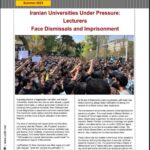





 Posted in
Posted in 
